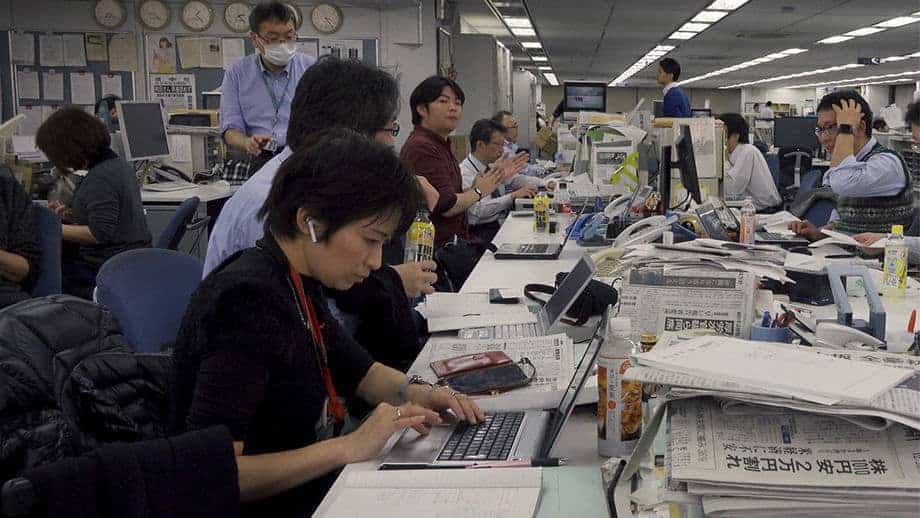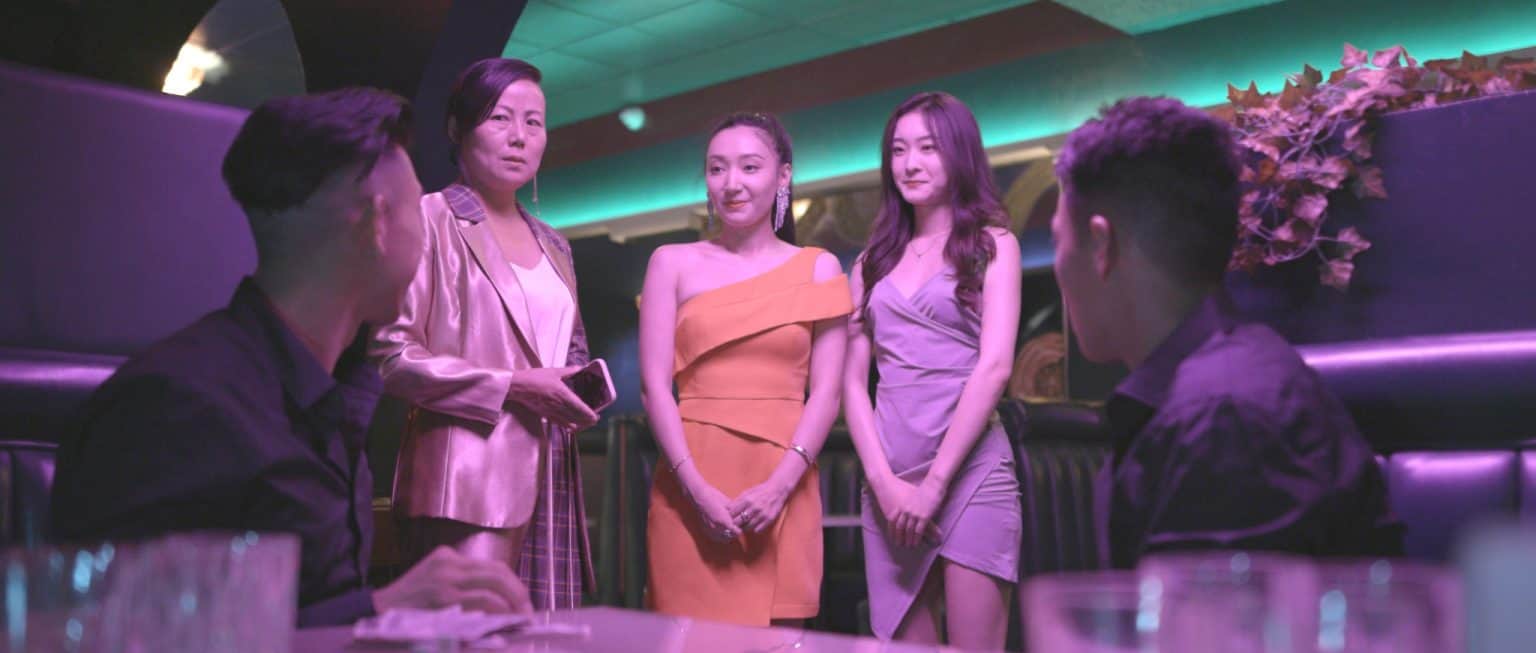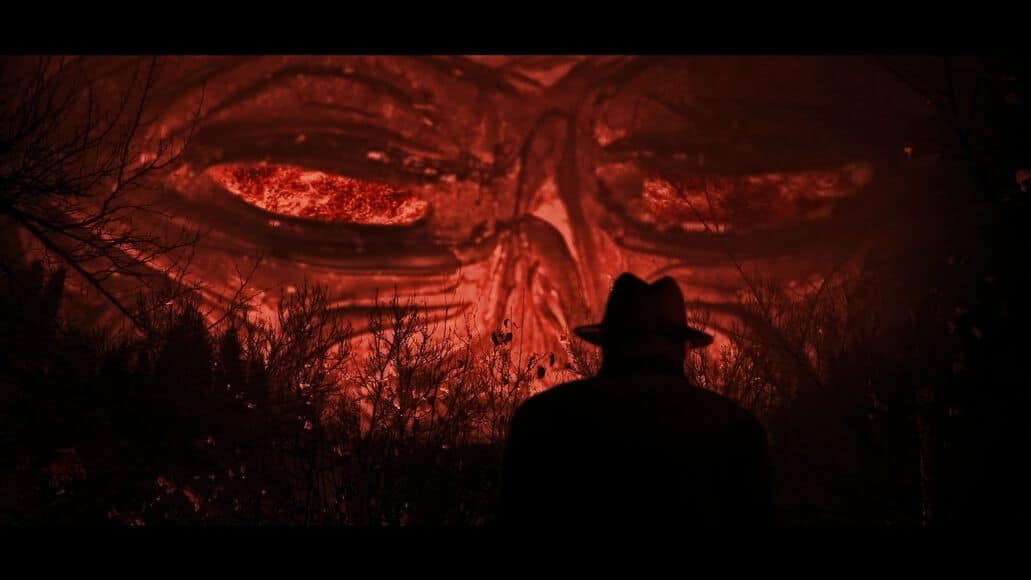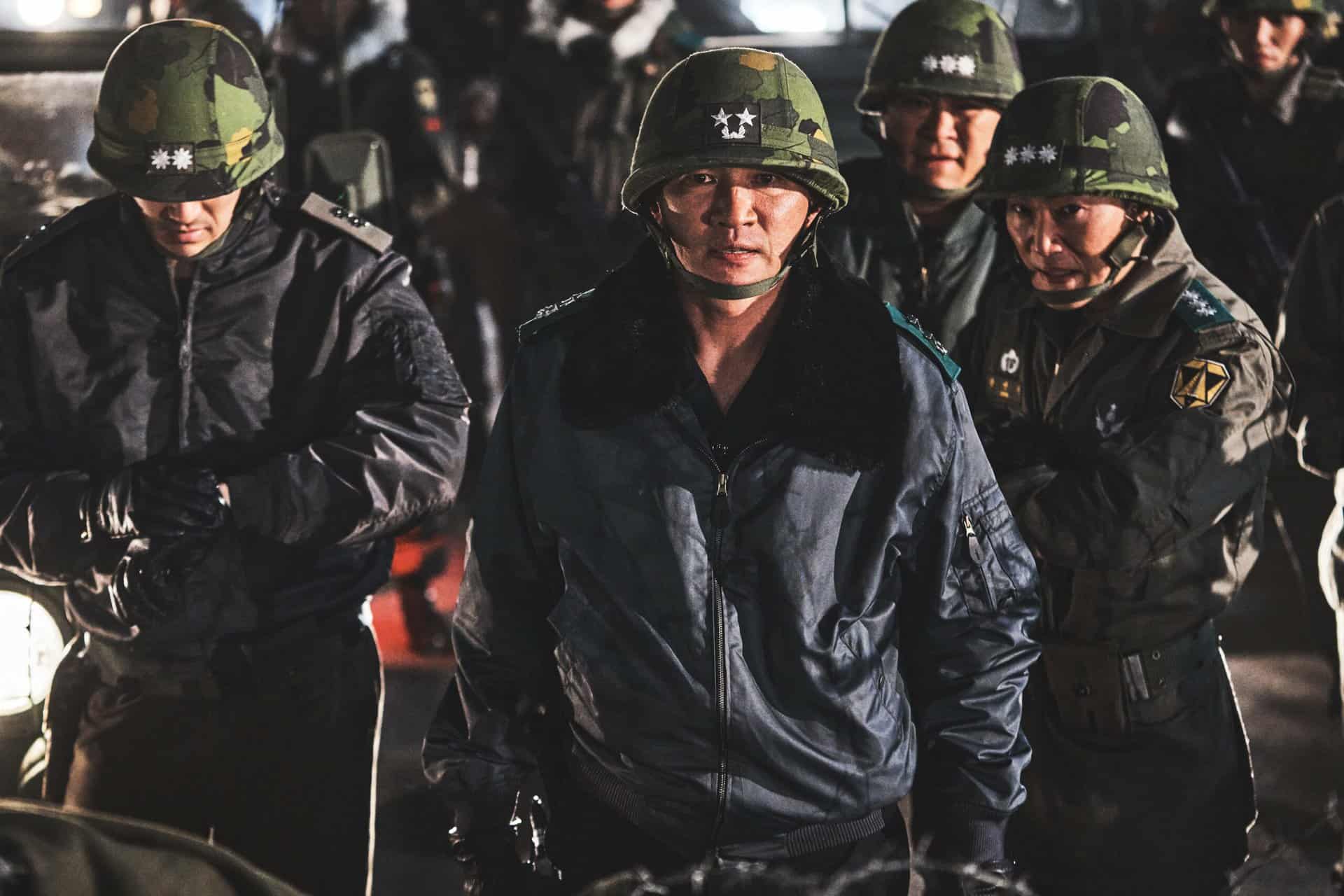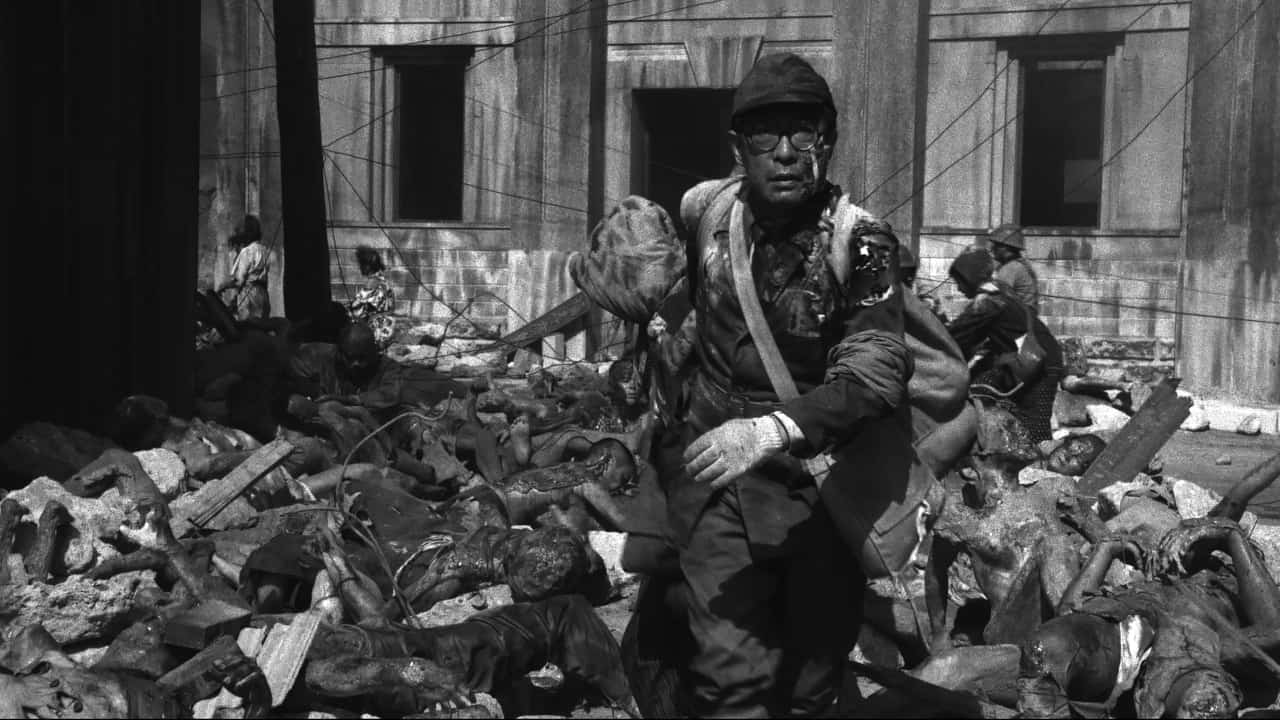After “Fake” and the portrait of Mamoru Samuragochi, Tatsuya Mori deals with another rather interesting personality, that of journalist Isoko Mochizuki, who has already inspired a feature film before this documentary, namely the multi-awarded “The Journalist“.
“i: Documentary of the Journalist” is screening at Nippon Connection 2020

The majority of the documentary has Mori following (or more accurately, trying to keep up) Mochizuki with his camera, as she partakes on many press conferences and researches the most important stories of Japan in 2019. In that fashion, her non-stop work has her deal with the transfer of the US base in Hinoko, Okinawa, the Moritomo Gakuen scandal, which involved Shinzo Abe's wife, and Shiori Ito's charges of rape towards Noriyuki Yamaguchi, and the scandal of the cover up that followed. Her research of these cases, which include following Shiori Ito in the various events she participates to communicate her case, interviews with people involved, and questions to the various political offices, soon reveal that she has become a rather intense annoyance to the current regime, as much as a hero for many people.
All the aforementioned are juxtaposed with another issue, that of Japan's Press Freedom (or more accurately the lack of, since Japan ranks 67th in the world in the particular index; US is at 48). The “arteriosclerotic” system, which is dictated by the connection of traditional media with the political leadership becomes the recipient of harsh but quite accurate and fair criticism, as it is soon revealed that in order for someone to even access governmental press conferences, one has to become a member of a certain kisha club, which is actually the one that dictates who will and will not get in these meetings. Tatsuya Mori's constant efforts to accompany Mochizuki in one of these are repeatedly turned down, mostly due to rules that do not seem viable for anyone to comply with.
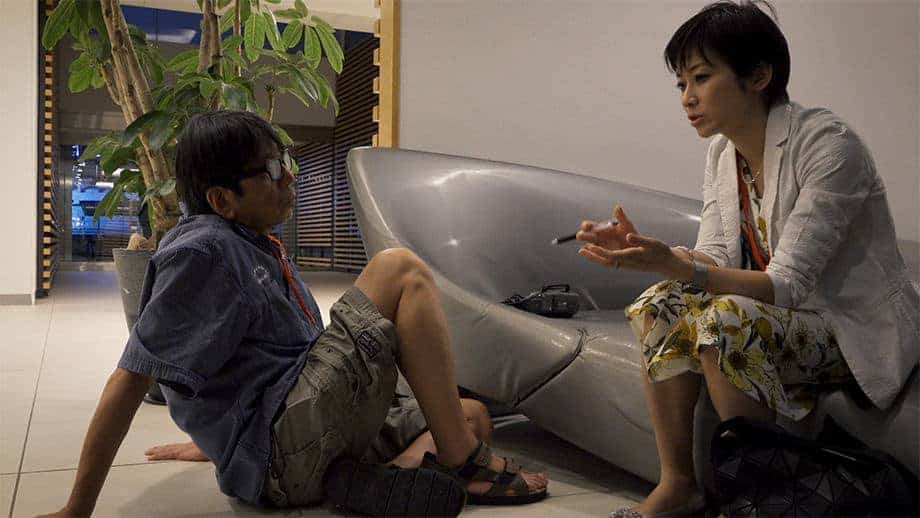
Mochizuki seems to work non-stop, and therefore, the documentary focuses almost exclusively on her as a journalist, although some details about her family are also included. This aspect benefits the documentary the most, as it strips it from any kind of melodramatic aspects
Another element that makes the film so interesting is that Mochizuki's reality seems more intriguing (and in essence, more entertaining) than anything that has been ever presented in political thriller movies. The scandals are here, many of the protagonists eventually agree to get in front of the camera and speak, including the Moritomos, and Mochizuki even has an arch rival, in the face of Chief Cabinet Secretary Yoshihide Suga, who is the one who usually has to face her non-conformist to the aforementioned journalistic practices questions. The fact that she has actually managed to tire him down becomes more and more evident as the film progresses, to the point of being one of the main points of entertainment the film offers. The second aspect that adds to the entertainment is the rather frantic editing, which matches completely Mochizuki's tempo, and is the one that actually allows so much material to be included in the 113 minutes of the documentary. Perhaps the only (kind of) fault in that is that film demands unwavering attention from its viewer, since even a second lost can mean something very important is forfeited.
Tatsuya Mori discovered a more than interesting subject in the face of Isoko Mochizuki, which also allowed him to deal with a number of sociopolitical topics that torment Japanese society. The result is impressive is one of the best documentaries of the year.


